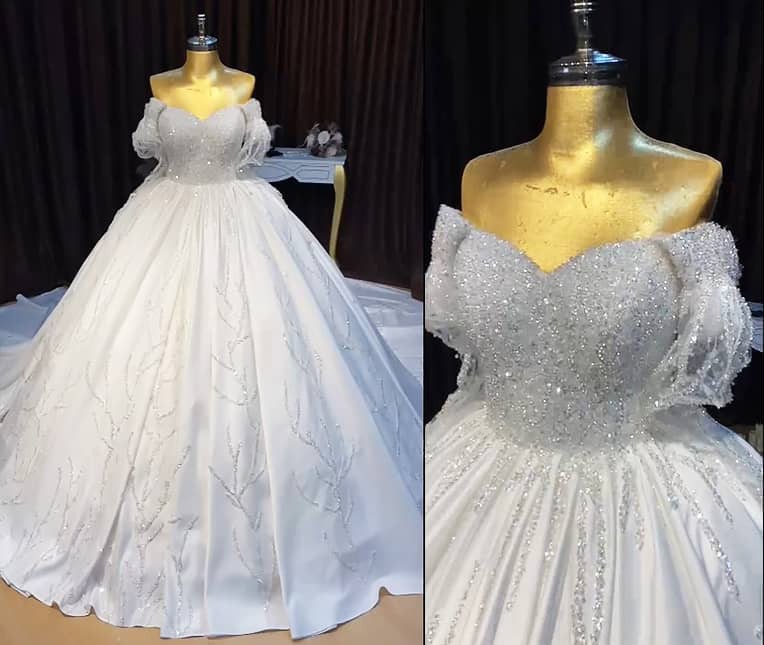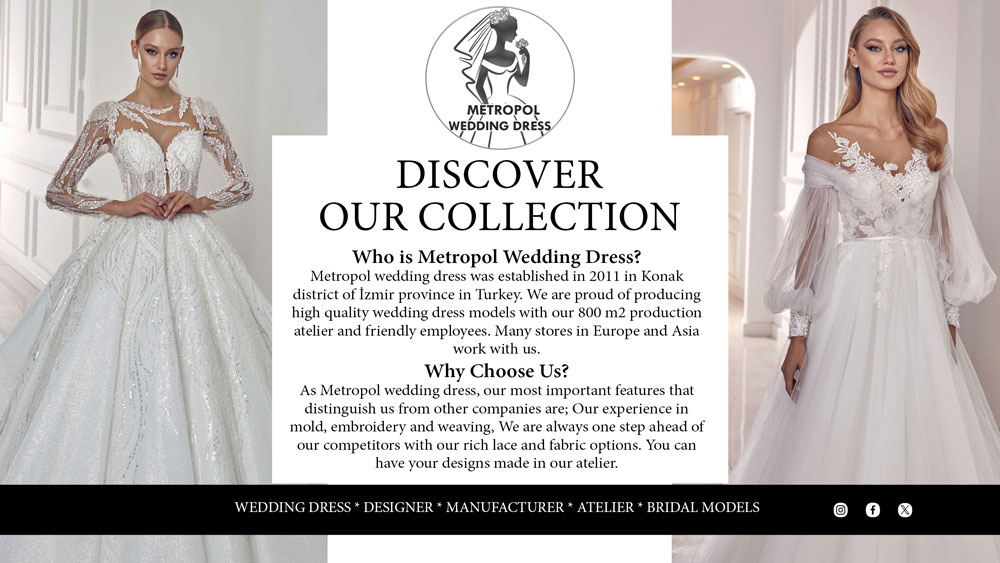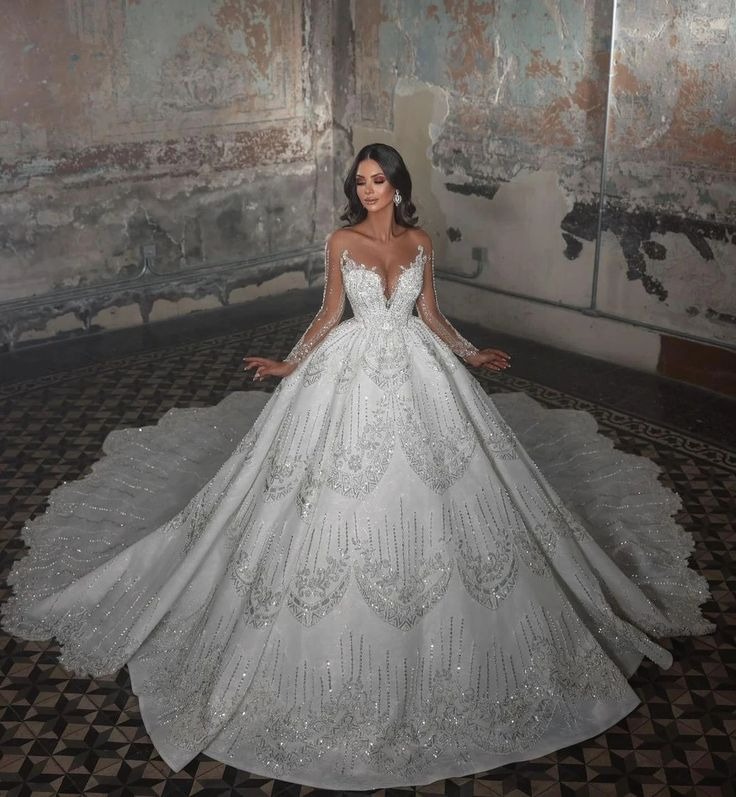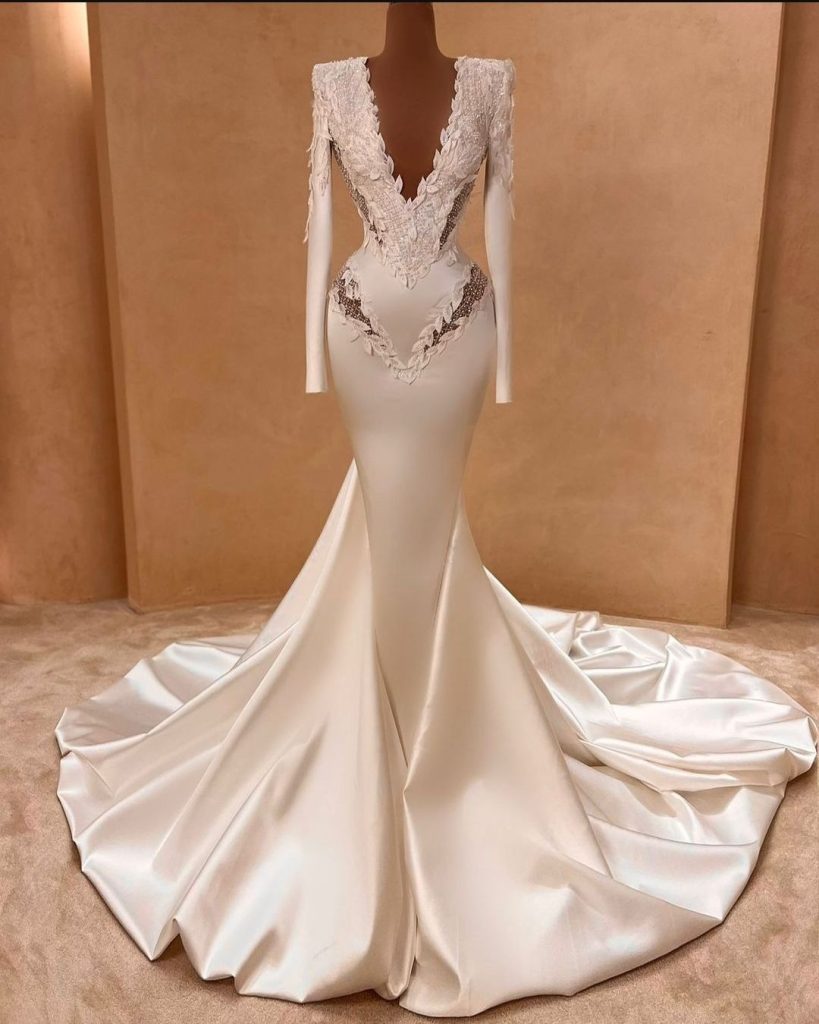
Wedding Dress İmport From İstanbul The wedding dress industry is a vibrant and ever-evolving sector, with Istanbul, Turkey, emerging as a significant hub for high-quality, affordable, and stylish wedding dresses. Known for its rich textile heritage, skilled craftsmanship, and competitive pricing, Istanbul has become a go-to destination for retailers, boutiques, and individuals looking to import wedding dresses. This guide provides an in-depth exploration of the process, benefits, challenges, and best practices for importing wedding dresses from Istanbul, offering a detailed roadmap for businesses and entrepreneurs.
Why Choose Istanbul for Wedding Dress Imports?
1. Rich Textile and Fashion Heritage
Istanbul has a long-standing reputation in the textile and fashion industry, rooted in Turkey’s history as a bridge between Europe and Asia. The city combines traditional craftsmanship with modern design trends, producing wedding dresses that appeal to diverse global markets. From intricate lacework to luxurious fabrics, Istanbul’s manufacturers are skilled at creating dresses that meet international standards.
2. Competitive Pricing
Compared to Western markets, Istanbul offers wedding dresses at significantly lower prices without compromising quality. This cost advantage is driven by lower labor costs, access to local materials, and economies of scale in Turkey’s textile industry. Importers can source high-end designs at a fraction of the cost, making it an attractive option for boutiques and retailers.
3. Diverse Design Options
Istanbul’s wedding dress manufacturers cater to a wide range of styles, from classic ball gowns to modern minimalist designs. Whether targeting traditional brides or those seeking contemporary, bohemian, or culturally specific dresses, importers can find suppliers offering customizable and trend-forward collections.
4. Proximity to Europe and Asia
Istanbul’s strategic geographic location makes it an ideal sourcing hub for businesses in Europe, the Middle East, and beyond. Efficient logistics networks, including air, sea, and land transport, ensure timely delivery to global markets.
5. Customization and Private Labeling
Many manufacturers in Istanbul offer bespoke services, allowing importers to customize designs, fabrics, and embellishments. Private labeling is also common, enabling businesses to brand dresses under their own labels, enhancing their market presence.
Understanding the Wedding Dress Market in Istanbul
Key Manufacturing Hubs
Istanbul’s wedding dress industry is concentrated in several districts, including:
- Fatih: Home to the Grand Bazaar and numerous textile wholesalers, Fatih is a hub for traditional and ornate designs.
- Merter: A major textile district with factories and showrooms offering a mix of ready-to-wear and custom dresses.
- Zeytinburnu: Known for its large-scale manufacturers and competitive pricing, ideal for bulk orders.
- Bağcılar: A growing area for modern bridal fashion, with suppliers catering to international trends.
Types of Suppliers
- Manufacturers: Large factories producing dresses in bulk, often with in-house design teams.
- Wholesalers: Distributors offering a wide range of dresses from multiple manufacturers, ideal for smaller orders.
- Boutique Designers: Smaller ateliers specializing in high-end, custom, or niche designs.
- Trading Companies: Intermediaries that connect importers with manufacturers, handling logistics and communication.
Wedding Dress İmport From İstanbul
Istanbul’s manufacturers produce a variety of styles to suit global tastes, including:
- A-line dresses with flowing trains
- Mermaid and trumpet silhouettes
- Boho-chic lace designs
- Ball gowns with intricate embroidery
- Modest designs for conservative markets
- Minimalist satin and silk dresses
Steps to Import Wedding Dresses from Istanbul
Step 1: Market Research and Planning
Before importing, conduct thorough research to understand your target market’s preferences, including popular styles, sizes, and price points. Analyze competitors to identify gaps in the market and define your unique selling proposition (USP). Determine your import volume, whether small batches for a boutique or large orders for retail chains.
Step 2: Finding Reliable Suppliers
- Online Platforms: Websites like Alibaba, Made-in-Turkey, and Turkishexporter connect importers with Istanbul-based suppliers. Use filters to find manufacturers specializing in wedding dresses.
- Trade Shows: Attend events like the Istanbul Fashion Fair or IF Wedding Fashion İzmir to meet suppliers in person and view collections.
- Local Agents: Hire a sourcing agent familiar with Istanbul’s textile industry to identify trusted manufacturers and negotiate deals.
- B2B Directories: Use directories like Kompass or Yellow Pages Turkey to find verified suppliers.
Step 3: Evaluating Suppliers
When selecting suppliers, consider the following:
- Reputation: Check reviews, testimonials, and references from other importers.
- Production Capacity: Ensure the supplier can meet your order volume and deadlines.
- Quality Standards: Request samples to assess fabric quality, stitching, and embellishments.
- Certifications: Verify compliance with international standards like ISO or OEKO-TEX for eco-friendly textiles.
- Communication: Choose suppliers with clear communication channels, preferably in English.
Step 4: Requesting Samples
Order samples of desired designs to evaluate quality and fit. Samples typically cost $50-$200 per dress, depending on complexity. Use this stage to request modifications, such as changes in fabric or embellishments, to align with your market’s preferences.
Step 5: Negotiating Terms
Negotiate pricing, minimum order quantities (MOQs), and payment terms. Common terms include:
- FOB (Free on Board): The supplier covers costs until the dresses are loaded onto the ship.
- CIF (Cost, Insurance, Freight): The supplier handles costs, including shipping and insurance, until the dresses reach your port.
- Payment Methods: Use secure options like bank transfers, PayPal, or letters of credit. Avoid cash payments to minimize risks.
Step 6: Placing the Order
Once terms are agreed upon, sign a detailed contract outlining:
- Product specifications (design, fabric, sizes, colors)
- Order quantity and delivery timeline
- Quality control measures
- Payment schedule
- Return or refund policies
Step 7: Quality Control
Implement quality checks to ensure the dresses meet your standards:
- Pre-Production Inspection: Verify materials and designs before production begins.
- During Production: Monitor progress to address issues early.
- Pre-Shipment Inspection: Inspect finished dresses for defects, sizing accuracy, and packaging.
Hire a third-party inspection agency if needed to ensure impartiality.
Step 8: Shipping and Logistics
Choose a shipping method based on your budget and timeline:
- Air Freight: Fast (5-10 days) but expensive, ideal for small, high-value orders.
- Sea Freight: Cost-effective for bulk orders, with transit times of 20-40 days.
- Courier Services: Use DHL, FedEx, or UPS for samples or urgent deliveries.
Work with a freight forwarder to handle customs clearance, documentation, and delivery to your warehouse.
Step 9: Customs and Import Duties
Research import regulations in your country to avoid delays or penalties. Key considerations include:
- HS Codes: Wedding dresses typically fall under HS code 6204.43 (dresses of synthetic fibers) or similar, depending on the material.
- Import Duties: Check duty rates, which vary by country (e.g., 12% in the EU, 8% in the US for certain textiles).
- Documentation: Prepare invoices, packing lists, bills of lading, and certificates of origin to clear customs.
- Free Trade Agreements: Turkey has trade agreements with the EU, UK, and other regions, potentially reducing tariffs.
Consult a customs broker to streamline the process and ensure compliance.
Step 10: Marketing and Sales
Once the dresses arrive, develop a marketing strategy to promote your inventory:
- Online Presence: Create a website or sell on platforms like Etsy, Amazon, or eBay.
- Social Media: Use Instagram, Pinterest, and TikTok to showcase designs and attract brides.
- Bridal Shows: Participate in local or regional bridal expos to connect with customers.
- Collaborations: Partner with wedding planners, photographers, or influencers to boost visibility.
Challenges and Solutions
Challenge 1: Language Barriers
Many suppliers in Istanbul may have limited English proficiency, leading to miscommunication.
- Solution: Hire a translator or sourcing agent fluent in Turkish and English. Use clear, concise communication and visual aids like sketches or photos to convey requirements.
Challenge 2: Quality Inconsistencies
Some suppliers may deliver dresses that differ from samples in terms of fabric or craftsmanship.
- Solution: Conduct thorough quality inspections at multiple stages. Include detailed specifications in contracts and maintain open communication with suppliers.
Challenge 3: Shipping Delays
Global supply chain disruptions or customs issues can delay deliveries.
- Solution: Build buffer time into your schedule. Choose reliable freight forwarders and track shipments regularly.
Challenge 4: Cultural Differences
Business practices in Turkey may differ from those in your country, affecting negotiations or timelines.
- Solution: Research Turkish business etiquette, such as building personal relationships and respecting hierarchies. Be patient and flexible during negotiations.
Challenge 5: High Competition
The wedding dress market is competitive, with many importers sourcing from Istanbul.
- Solution: Differentiate your brand through unique designs, superior customer service, or targeting niche markets (e.g., eco-friendly or plus-size bridal wear).
Best Practices for Successful Imports
- Build Long-Term Relationships: Partner with reliable suppliers for consistent quality and better pricing over time.
- Stay Trend-Aware: Follow global bridal fashion trends to ensure your inventory remains relevant.
- Diversify Suppliers: Work with multiple manufacturers to mitigate risks and access a broader range of designs.
- Leverage Technology: Use tools like ERP software to manage inventory, orders, and logistics efficiently.
- Focus on Sustainability: Source eco-friendly fabrics or partner with suppliers prioritizing sustainable practices to appeal to conscious consumers.
Case Study: Importing Wedding Dresses for a US Boutique
Background
A small bridal boutique in California wanted to import 100 wedding dresses from Istanbul to expand its inventory with affordable, high-quality designs. The boutique targeted mid-range brides seeking modern and bohemian styles.
Process
- Research: The boutique owner attended IF Wedding Fashion İzmir, connecting with three manufacturers in Merter.
- Supplier Selection: After ordering samples, the owner chose a manufacturer offering customizable lace dresses with an MOQ of 50 units.
- Negotiation: The supplier agreed to a CIF price of $80 per dress, with a 30% deposit and 70% upon delivery.
- Quality Control: A local agent conducted pre-shipment inspections, ensuring all dresses met specifications.
- Shipping: The dresses were shipped via sea freight, arriving in Los Angeles in 25 days.
- Customs: A customs broker handled documentation, with duties calculated at 8% of the invoice value.
- Marketing: The boutique promoted the collection on Instagram, hosting a launch event that attracted 50 potential customers.
Outcome
The boutique sold 80 dresses within three months, achieving a 150% profit margin. The owner established a long-term partnership with the supplier, planning to import 200 dresses for the next season.
Future Trends in Istanbul’s Wedding Dress Industry
1. Sustainable Bridal Fashion
With growing demand for eco-friendly products, Istanbul’s manufacturers are adopting sustainable fabrics like organic cotton, recycled polyester, and biodegradable lace. Importers can capitalize on this trend by sourcing green collections.
2. Digital Showrooms
Suppliers are increasingly offering virtual showrooms and 3D design tools, allowing importers to preview collections remotely and reduce travel costs.
3. Inclusive Sizing
To cater to diverse markets, manufacturers are expanding size ranges, including plus-size and petite options, ensuring broader appeal.
4. Fast Fashion Influence
Some suppliers are adopting fast-fashion models, producing smaller batches with shorter lead times to align with rapidly changing trends.
5. Technology Integration
Advanced manufacturing techniques, such as laser cutting and automated embroidery, are enhancing precision and reducing production costs.
Conclusion
Importing wedding dresses from Istanbul offers a lucrative opportunity for businesses seeking high-quality, cost-effective, and stylish bridal wear. By understanding the market, partnering with reliable suppliers, and navigating logistics effectively, importers can build a successful operation. Despite challenges like language barriers and shipping delays, careful planning and adherence to best practices can ensure a smooth process. As Istanbul continues to innovate and adapt to global trends, it remains a premier destination for wedding dress imports, promising growth and profitability for savvy entrepreneurs.
Additional Resources
- Trade Associations: Contact the Istanbul Textile and Apparel Exporters’ Association (İTKİB) for supplier recommendations.
- Online Marketplaces: Explore Turkishexporter.net for verified manufacturers.
- Logistics Partners: Work with global freight forwarders like DSV or Kuehne+Nagel for reliable shipping.
- Customs Information: Visit your country’s customs website (e.g., U.S. Customs Service, EU Customs Union) for import regulations.
By leveraging Istanbul’s strengths and staying informed about industry trends, importers can establish a thriving business in the competitive world of bridal fashion.
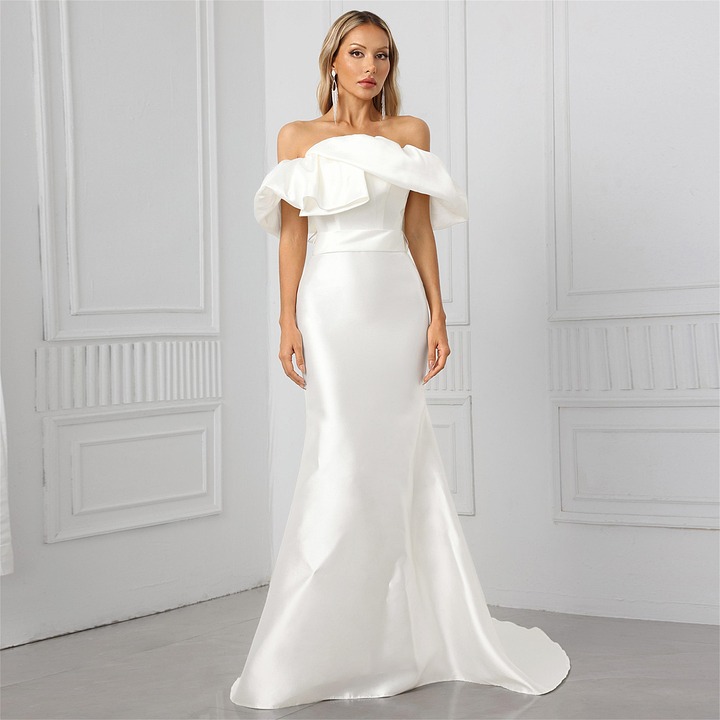
Imported Wedding Gowns Supplier
Finding a reliable supplier for imported wedding gowns involves identifying manufacturers or wholesalers with a strong reputation for quality, variety, and competitive pricing. Based on available information, here are some key options and insights for sourcing imported wedding gowns:
- BYG Wedding Factory (bygweddingfactory.com)
- A professional bridal gown manufacturer and wholesaler offering a diverse range of high-quality gowns with no minimum order quantity (MOQ).
- Known for competitive pricing, excellent designs, and handcrafted dresses.
- Offers international shipping and has received positive feedback for custom orders and customer service, particularly for accommodating budget constraints and foreign exchange considerations.
- Ideal for bridal boutiques or individual brides seeking premium gowns at factory prices.
- Brydealo Factory (brydealofactory.com)
- Specializes in wholesale wedding dresses, bridal veils, plus-size prom gowns, and flower girl dresses since 2010.
- Provides custom designs and private labeling, allowing boutiques to create exclusive collections.
- Offers a wide range of styles, from classic to modern, with premium materials like lace, silk, and satin.
- Known for global collaboration with bridal stores and a user-friendly website with detailed sizing guides.
- Makerry Bridal (makerry.com)
- A Chinese manufacturer with over 16 years of experience, offering high-quality wholesale and custom-made wedding dresses.
- Specializes in gowns for the entire bridal party, including bridesmaids, mothers, and flower girls, with accessories like veils and shawls.
- Provides OEM processing and customization, giving retailers creative control over designs.
- Competitive pricing and a focus on diverse styles, from simple to luxurious.
- AiDo Factory (buildmybridalbrand.com)
- A reliable wholesale supplier prioritizing high quality, unique designs, and affordable pricing.
- Offers a variety of fabrics (satin, lace, silk) and styles, from classic to modern, with 300 new styles annually.
- Produces 70,000 dresses yearly and serves markets in the US, Europe, and beyond.
- Known for fast production and delivery, catering to bridal boutiques and designers.
- Slanovskiy (slanovskiy.com)
- A Ukrainian manufacturer since 2006, offering premium handmade wedding dresses with worldwide shipping.
- Produces dresses in middle and high-price segments, including haute couture and private label options.
- Uses high-quality fabrics and follows US and EU standards, with a focus on innovative designs and reasonable prices.
- Positive reviews for customer service and product quality from international clients, including in Asia.
- Alibaba (alibaba.com)
- A global platform connecting buyers with numerous wedding gown suppliers, primarily from China (e.g., Guangzhou).
- Offers a wide variety of styles, including A-line, mermaid, and ball gowns, with options for custom sizing and low MOQs.
- Competitive pricing but requires careful vetting of suppliers for quality and reliability.
- Suitable for bulk orders or retailers seeking cost-effective options.
- Bukola Bridals (X Platform)
- An individual supplier (@BukolaBridals) offering luxury wedding gowns sourced from factories based on personal specifications.
- Provides additional services like beadwork, handfans, and event decoration, with a focus on international shipping.
- Ideal for brides or small businesses seeking personalized service, though limited to individual orders rather than bulk wholesale.
Key Considerations:
- Quality and Customization: Suppliers like Makerry Bridal, Brydealo, and Slanovskiy emphasize premium fabrics and bespoke designs, ideal for boutiques aiming to offer unique gowns.
- Pricing and MOQ: BYG and AiDo offer no or low MOQs, making them accessible for smaller businesses, while Alibaba provides budget-friendly options for bulk purchases.
- Location and Shipping: Chinese suppliers (e.g., AiDo, Makerry) and Ukrainian suppliers (e.g., Slanovskiy) offer global shipping, but delivery times and costs vary. Check for express shipping options if time is critical.
- Reputation: Look for suppliers with positive reviews, like BYG’s praise for perfect fit and communication, or Slanovskiy’s high-quality feedback from international salons.
- Private Labeling: Brydealo, BETANCY, and Slanovskiy offer private labeling, helping boutiques build their brand identity.
Recommendations:
- For boutiques, BYG Wedding Factory and Brydealo Factory are excellent for their flexibility, quality, and branding options.
- For bulk orders, Alibaba or AiDo Factory provide cost-effective solutions with diverse selections.
- For custom or luxury gowns, Slanovskiy and Makerry Bridal offer high-end craftsmanship and personalization.
- For individual brides, Bukola Bridals provides a tailored experience with international sourcing.
Always request samples, verify supplier credentials, and clarify shipping terms before committing. For further details, you can explore specific supplier websites or contact them directly for wholesale pricing and catalogs. If you need assistance narrowing down options based on location, budget, or style preferences, let me know!
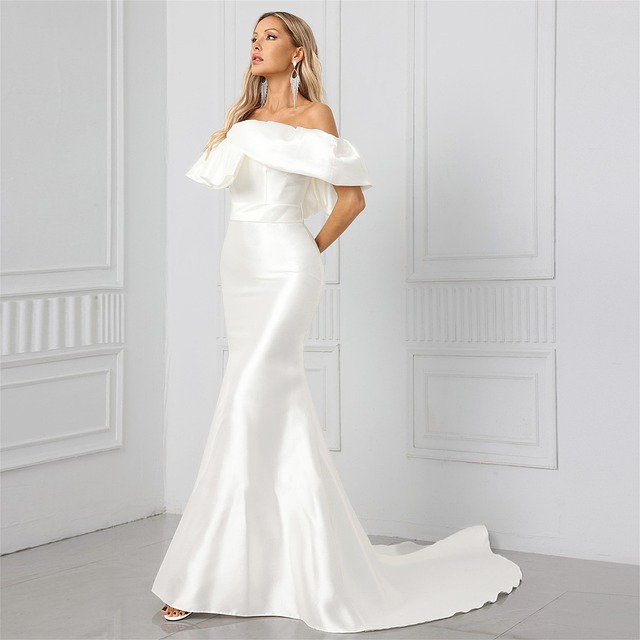
Import Wedding Dresses
I’m assuming you’re asking about importing wedding dresses, possibly for personal use or as part of a business venture, but your query is a bit vague. Could you clarify whether you’re looking for information on how to import wedding dresses (e.g., logistics, suppliers, regulations), specific countries to import from, cost considerations, or something else? For now, I’ll provide a concise overview of key considerations for importing wedding dresses, focusing on practical steps and potential challenges, based on available information.
Key Considerations for Importing Wedding Dresses
- Finding Suppliers:
- Popular Platforms: Websites like Alibaba.com offer wholesale wedding dresses, with options like mermaid gowns or custom designs. You can find deals with minimum order quantities as low as 1–50 pieces.
- Country-Specific Suppliers: Turkey is a notable hub for wedding dress production, offering a range of models at competitive prices. Companies like Tebadul International Trade provide services to connect importers with Turkish manufacturers.
- Designer Brands: If you’re importing for retail, brands like Oksana Mukha (Ukraine) or Milla Nova offer high-quality, fashion-forward gowns that can be ordered online with custom sizing.
- Logistics and Shipping:
- Shipping Costs: Costs vary based on destination, gown weight, and shipping speed. International shipments incur import duties and taxes, which the recipient must pay. Get quotes from multiple carriers using box measurements, dress weight, and destination zip code.
- Packaging: Use a box that fits the gown snugly to avoid damage. Require a signature upon delivery to prevent theft, and keep a drop-off receipt for liability purposes.
- Timeline: Order 6–8 months in advance for made-to-order dresses to account for production, shipping, and alterations. Some suppliers, like Avery Austin, deliver in about 8 weeks.
- Customs and Import Regulations:
- Duties and Taxes: Import fees vary by country. For example, importing from Turkey to the U.S. or EU may involve additional costs, so check local customs regulations.
- Bans or Restrictions: Some regions, like Gaza, have restrictions on importing wedding dresses (noted as of June 2024). Verify regulations for your destination.
- Documentation: Ensure suppliers provide proper invoices and certificates of origin to avoid customs delays.
- Cost Considerations:
- Dress Prices: Wholesale prices start as low as $99 for discounted gowns (e.g., TheDressWarehouse) or $100–$500 for budget-friendly options (e.g., JJ’s House). Custom or designer gowns can cost more.
- Hidden Costs: Factor in shipping, taxes, duties, and alterations. Online purchases may seem cheaper upfront, but these extras can add up.
- Quality vs. Price: Customer reviews suggest that dresses from trusted suppliers (e.g., Havedressstore, Afarose) often exceed expectations in quality, but verify fabric details and read reviews to avoid surprises.
- Fit and Customization:
- Custom Sizing: Many online retailers (e.g., Azazie, Olivia Bottega) offer free custom sizing or try-at-home programs for $15 per dress to ensure fit.
- Alterations: Most gowns require tailoring, especially if ordered online. Budget for this and check return policies in case the dress doesn’t meet expectations.
- Risks and Challenges:
- Fit Uncertainty: Online purchases can be tricky without trying on the dress. Use accurate measurements and consult stylists if available.
- Quality Concerns: Read product descriptions for fabric details (e.g., lace, satin, tulle) and check customer reviews. Order fabric swatches if possible (e.g., JJ’s House offers swatches for $2).
- Scams or Delays: Stick to reputable platforms or suppliers with strong reviews. Avoid deals that seem too good to be true.
Practical Steps to Start Importing
- Research Suppliers: Use platforms like Alibaba, or contact Turkish exporters via Tebadul for bulk orders. For designer gowns, explore sites like Azazie, Cocomelody, or Oksana Mukha.
- Verify Regulations: Check import duties, taxes, and restrictions for your country. Use resources like customs service websites or consult a freight forwarder.
- Request Quotes: Contact suppliers for pricing, minimum orders, and shipping details. Compare at least 2–3 options.
- Order Samples: Test quality by ordering a sample dress or fabric swatch before committing to a large order.
- Plan Logistics: Arrange shipping with a reliable carrier, ensuring proper packaging and tracking. Budget for alterations and customs fees.
- Market Research (for Business): If importing for resale, study local demand for styles (e.g., A-line, mermaid) and price points. A-line silhouettes are universally popular.
Why Turkey? (A Common Choice)
Turkey is highlighted for its diverse wedding dress models, competitive pricing, and reliable export services. Tebadul notes that Turkish dresses cater to various tastes, from traditional to modern, and their trade infrastructure supports international buyers. If you’re considering Turkey, reach out to platforms like Tebadul for supplier connections and logistics support.
Critical Notes
- Online Shopping Pros: Endless styles, global access, and try-before-you-buy options make importing easier.
- Cons: Fit issues, hidden costs, and potential quality surprises require careful planning.
- Sustainability: Some brands (e.g., Grace Loves Lace) emphasize ethical production, which may appeal to eco-conscious buyers.
- X Post Context: A post on X mentioned a ban on wedding dress imports in Gaza, suggesting local production as an alternative. This highlights the importance of checking regional restrictions.
If you’re importing for personal use, sites like Azazie, Lulus, or Afarose offer affordable, customizable options with good reviews. For business, wholesale platforms like Alibaba or Turkish exporters are cost-effective but require due diligence.
Please provide more details (e.g., country of import, budget, or purpose) for a tailored response. If you meant something else by “Import Wedding Dresses,” like a specific style or cultural context, let me know!
Bridal Dresses Collection
The 2025 bridal dress collections showcase a blend of timeless elegance and modern innovation, catering to diverse tastes and styles. Here’s a concise overview of key trends and highlights based on current bridal fashion:
Key Trends for 2025 Bridal Dresses
- Basque and Drop Waist Silhouettes
- Basque waists, with a V or U-shaped dip at the waist, create an hourglass figure and evoke vintage-inspired elegance.
- Drop waists elongate the torso, offering a sleek, modern look with versatility for both fitted and voluminous skirts.
- Minimalist Designs
- Clean lines, simple silhouettes, and luxurious fabrics like silk and satin dominate, emphasizing understated sophistication.
- Elevated minimalism focuses on natural beauty with minimal embellishments.
- Bold Textures and Embellishments
- 3D floral appliqués, metallic embellishments, and intricate embroidery add depth and whimsy.
- Matte lace offers a modern, organic alternative to traditional glossy lace.
- Non-Traditional Colors
- While classic white and ivory remain popular, soft pastels (blush, champagne, dusty blue) and bold hues (burgundy, emerald, black) are gaining traction for statement-making brides.
- Versatile Separates and Shorter Lengths
- Bridal separates, like corsets and skirts, allow for mix-and-match personalization and multiple looks for ceremony, reception, and after-party.
- Short, midi, and mini dresses are trending for casual or destination weddings, offering comfort and a playful vibe.
- Statement Sleeves and Necklines
- Long sleeves with lace, sheer fabrics, or dramatic cuffs add elegance and modesty.
- Necklines range from plunging V-necks to high necklines and peaked architectural designs.
- Slits for Drama
- Thigh-high or modest slits add movement and a bold, fashion-forward touch, perfect for showcasing statement footwear.
Notable Collections
- Pronovias: Features luxurious designs like the princess-cut Sedna, ballgown Louelle, and mermaid Noemie, blending modern and timeless elements.
- Rosa Clara Couture, Freda Bennet, Mikaella, Adriana Alier at May & Grace Bridal Boutique: On-trend dresses with a focus on elegance and variety.
- Sherri Hill: Offers a range from ballgowns to fitted mermaid dresses, catering to both classic and bold brides.
- David’s Bridal: Extensive collection with mermaid, ballgown, and sheath styles for every aesthetic.
- Azazie: Emphasizes minimalist designs, bold colors, and bridal separates for a personalized look.
- Vera Wang Bride x Pronovias: Combines high-fashion innovation with intricate detailing.
- Oksana Mukha: Known for handcrafted excellence, using Chantilly lace, silk, and Swarovski crystals for unique, artful gowns.
- Max Mara: Minimalist yet sophisticated, with jumpsuits and mermaid bustier gowns in organza and tulle.
- Indian Bridal Wear at Pernia’s Pop-Up Shop: Features lehengas, sarees, and anarkalis with intricate embroidery and cultural heritage, ideal for traditional or fusion weddings.
Shopping Tips
- Timeline: Purchase your gown 8-10 months before the wedding to allow time for fittings and alterations.
- Budget: Set a budget that includes accessories like shoes and jewelry.
- Personal Style: Choose silhouettes and fabrics that make you feel confident, whether minimalist or embellished.
- Appointments: Book with boutiques like The Bridal Collection or Bridal Atelier Montclair for personalized styling.
Where to Explore
- Online: Check Pronovias (pronovias.com), David’s Bridal (davidsbridal.com), Azazie (azazie.com), or Pernia’s Pop-Up Shop (perniaspopupshop.com) for extensive collections.
- In-Store: Visit boutiques like May & Grace Bridal (Haslemere, Surrey) or Essense of Australia retailers for hands-on experiences.
- Social Media: Follow designers like @verawangbride or @bridalguidemag on X for inspiration.
For a deeper dive, I can search specific designers, styles, or regions if you provide more details about your preferences (e.g., silhouette, budget, or cultural influences). Would you like me to focus on a particular aspect or generate an image of a specific dress style?
Import Wedding Dresses from Turkey
Importing wedding dresses from Turkey can be a lucrative business due to the country’s reputation for high-quality craftsmanship, diverse designs, and competitive pricing. Below is a comprehensive guide to help you navigate the process, based on current information and industry practices.
Why Import Wedding Dresses from Turkey?
- Quality and Craftsmanship: Turkish wedding dresses are known for exquisite embroidery, delicate lace, and luxurious fabrics like silk, tulle, and satin. The country has a skilled workforce and advanced textile technology.
- Affordability: Prices typically range from $100 to $2,500 per dress, depending on fabric, design, and craftsmanship, making them cost-effective compared to European markets.
- Variety: Turkey offers a wide range of styles, from traditional to modern, including mermaid, A-line, and princess designs, catering to diverse tastes.
- Global Demand: There is a high demand for wedding dresses in international markets, especially where local manufacturing is limited.
Steps to Import Wedding Dresses from Turkey
- Market Research and Planning
- Identify Your Target Market: Determine the styles, sizes, and price points that appeal to your customers (e.g., bridal boutiques, retailers, or direct consumers).
- Understand Regulations: Research import regulations in your country, including customs duties, taxes, and labeling requirements. For example, in the U.S., wedding dresses fall under HS code 6204.43, with duties varying by country of origin.
- Budgeting: Account for dress costs ($100–$2,500), shipping, customs duties, and other fees. Bulk buying can reduce per-unit costs.
- Find Reliable Suppliers
- Wholesale Marketplaces: Platforms like Istanbul Fashion Center, Alibaba, and TurkishExporter connect you with manufacturers and wholesalers.
- Key Markets in Istanbul:
- Notable Manufacturers:
- Trade Shows: Attend events like IF Wedding Fashion Izmir to meet suppliers and view collections in person.
- Online Platforms: Websites like Abiyefon and Amarya Bridal offer wholesale dresses with worldwide shipping.
- Verify Supplier Credentials
- Check for certifications like the Certificate of Origin from the Turkish Chamber of Commerce and product standard approvals from the Turkish Ministry of Commerce.
- Request samples to assess quality, craftsmanship, and fit.
- Verify the supplier’s reputation through reviews, references, or platforms like Fibre2Fashion.
- Required Documentation
- Certificate of Origin: Confirms the dresses are made in Turkey, often required for customs clearance.
- Commercial Invoice: Certified by Turkish trade authorities, detailing the transaction.
- Product Standard Approval: Issued by the Turkish Ministry of Commerce, ensuring compliance with quality standards.
- Shipping Policy: A document from the shipping company confirming receipt of goods.
- Penal Terms Agreement: Outlines penalties for late delivery.
- Packing List: Details the contents of the shipment.
- Bill of Lading/Airway Bill: Required for shipping.
- Logistics and Shipping
- Choose a Shipping Method:
- Work with a Freight Forwarder: They handle customs clearance, documentation, and delivery. Companies like Tebadul International Trade offer customs clearance and reliable shipping services.
- Packaging: Ensure dresses are securely packed to avoid damage during transit. Suppliers like Tebadul provide accurate packaging services.
- Customs and Import Duties
- Submit all documentation to your country’s customs authority.
- Pay applicable duties and taxes, which vary by country. For example, the U.S. imposes a 0–8% duty on wedding dresses under the Generalized System of Preferences for Turkey.
- Use a customs broker to streamline the process and ensure compliance.
- Quality Control and Delivery
- Inspect dresses upon arrival to ensure they match the order specifications.
- Address any discrepancies with the supplier immediately, referencing the penal terms agreement if necessary.
Tips for Success
- Start Small: Order a small batch to test the supplier’s quality and reliability before committing to large orders.
- Negotiate Bulk Discounts: Buying in bulk often lowers costs, as manufacturers pass on production savings.
- Stay Trendy: Follow global bridal fashion trends to stock popular styles like mermaid or minimalist dresses.
- Leverage Online Platforms: Websites like AliExpress and Amarya Bridal offer competitive prices and free shipping on qualifying orders.
- Build Relationships: Long-term partnerships with suppliers can lead to better pricing and priority service.
Challenges and Solutions
- Language Barriers: Use translation tools or hire a local agent to communicate with suppliers.
- Customs Delays: Ensure all documentation is complete and accurate to avoid hold-ups.
- Quality Issues: Request samples and conduct thorough supplier vetting to minimize risks.
Resources
- Tebadul International Trade: Offers end-to-end import services, including supplier sourcing, customs clearance, and shipping.
- Istanbul Fashion Center: A B2B platform for bulk buying from top brands like Abbride Bridal and Bella Vista.
- TurkishExporter: Lists export companies specializing in wedding dresses.
- Alibaba and AliExpress: Connect with manufacturers and wholesalers, with options for free shipping.
- Importing House: Provides guides and supplier recommendations for sourcing dresses from Turkey.
Cultural Considerations
- Turkish wedding dresses often incorporate traditional elements like intricate lacework or kaftan-inspired designs, which may appeal to customers seeking unique or culturally inspired gowns.
- Be aware of Turkish business etiquette, such as building trust through personal interactions and respecting negotiation processes.
Example Suppliers and Pricing
- Istanbul Fashion Center: Offers dresses from $100–$2,500, with bulk discounts.
- Amarya Bridal: Designer-quality dresses at competitive wholesale prices, with worldwide shipping.
- SkyCamera (Istanbul): Affordable dresses starting at $12, catering to various tastes.
Next Steps
- Identify 2–3 potential suppliers from platforms like Istanbul Fashion Center or TurkishExporter.
- Request quotes and samples to compare quality and pricing.
- Consult a freight forwarder or customs broker to understand shipping and import costs.
- Place a small trial order to test the process before scaling up.
For further details on suppliers or import logistics, visit:
- https://x.ai/grok for general inquiries
- https://www.tebadul.com for import services
- https://istanbulfashioncenter.com for wholesale dresses
- https://www.turkishexporter.com.tr for export companies
If you need assistance with specific suppliers, documentation, or customs regulations in your country, let me know, and I can provide tailored guidance!
Wholesale Bridal Fashion Dresses Products at Factory Prices
Looking to stock your boutique or online store with stunning bridal fashion at unbeatable prices? Discover a curated collection of wholesale bridal dresses designed for modern, elegant, and traditional brides alike. From luxurious ball gowns to minimalist chic styles, our wholesale bridal fashion products are available at direct factory prices, ensuring you get the best value without compromising on quality. Whether you’re targeting local markets or global clients, explore our high-demand designs that combine craftsmanship, affordability, and timeless beauty.
Wedding Dresses Imports in United States
The U.S. bridal industry is currently experiencing significant challenges due to newly imposed tariffs on imported wedding dresses, particularly those from China. With over 90% of bridal gowns sold in the U.S. manufactured in China, the Trump administration’s 145% tariff has led to substantial price increases. Retailers report wholesale price hikes of up to 30%, and some brides are facing unexpected charges on previously ordered dresses
In response, major retailers like David’s Bridal have shifted production to countries such as Sri Lanka, Vietnam, and India to mitigate costs. They’ve reduced their reliance on Chinese manufacturing from over 50% to about 30%, aiming to avoid passing increased costs onto consumers
Smaller bridal shops, however, are struggling to absorb these additional expenses without alienating customers. Many are appealing to lawmakers for exemptions on bridal gowns from the tariffs . The broader wedding industry is also affected, with vendors raising prices on various goods and services, leading couples to adjust their plans and budgets accordingly
As the situation evolves, both retailers and consumers are seeking ways to adapt to the changing economic landscape of the wedding industry.
Wedding dress Import and Export
Wedding Dress Import and Export Industry Overview
🌍 Global Trade in Wedding Dresses
Wedding dresses are a significant part of the global fashion trade. Most bridal gowns sold worldwide are manufactured in a handful of countries, then exported to meet international demand. The global bridal wear market was valued at over $61 billion in 2024, and a large portion of that revenue comes from cross-border trade.
📦 Top Exporting Countries
- China – By far the largest exporter of wedding dresses. Over 90% of U.S. bridal gowns were once made in China.
- Vietnam – An emerging hub, especially post-tariffs.
- India – Known for exporting ornate and traditional wedding wear, including lehengas and sarees.
- Sri Lanka & Bangladesh – Increasingly popular due to competitive labor costs and expanding textile industries.
🛬 Top Importing Countries
- United States – One of the largest consumers of bridal fashion.
- United Kingdom
- Germany
- Canada
- Australia
These countries import both mass-market and luxury bridalwear to supply retail stores and e-commerce platforms.
💼 Recent Trends & Challenges
1. Tariffs and Trade Policy
- In the U.S., tariffs on Chinese imports (up to 145%) have significantly increased the cost of bridal gowns.
- This has forced major retailers like David’s Bridal to shift production to India, Vietnam, and Sri Lanka.
2. Supply Chain Diversification
- Brands are looking to diversify their supply chains to avoid geopolitical risks and rising costs.
- More sustainable and ethically sourced dresses are also gaining popularity, with production shifting closer to markets in Europe and the U.S.
3. Rise of E-commerce
- Online platforms are facilitating direct-to-consumer exports, especially from Turkey, China, and India, to Western brides.
- This has created more options for brides and new revenue streams for manufacturers.
🔍 Opportunities for Wholesalers & Brands
- Importers can benefit from forming direct relationships with overseas manufacturers to access factory prices.
- Exporters should focus on creating customizable, high-quality designs to stand out in global markets.
- Digital showrooms and B2B marketplaces are making global trade easier than ever.


